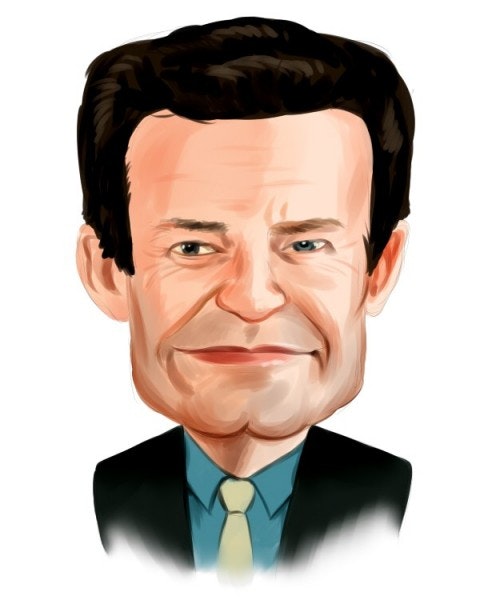The recent stock market correction resembles the situation during the Asian financial crisis back in 1997 and does not suggest an end to the bull market, said reputable investor Ken Fisher, in an interview on CNBC‘s “Closing Bell” on Tuesday. Let us remind you that the Asian financial crisis became a worldwide phenomenon on October 27, 1997, when the Dow Jones Industrial Average plummeted by 554.26 points. In contrast, the Dow Jones Industrial Average plunged by 469.68 points on Tuesday, which clearly pinpoints the similarity to the former “mini-crash”. In addition to that, Ken Fisher, founder and CEO of Fisher Investments, finds a few similarities between the current situation and the one in 1997, which made him claim that the current market turmoil “seems exactly like the 1997 correction”. Fisher asserted that both corrections occurred at a time with stable interest rates, falling commodity markets, with tech and healthcare sectors leading the markets and energy straggling behind, and most importantly, these corrections have been following long periods without a correction.

Follow Ken Fisher's Fisher Asset Management
Given that the current turmoil in stock markets perfectly resembles the situation in 1997, what should investors and other market participants expect to happen in the near future? Ken Fisher suggests that it is highly likely that the correction or the downside will continue, but it will be “over just as fast as it began”. However, the well-known investor also claims that it would be almost impossible to predict when the correction will be over and the stock markets will begin to recover. Going back to the financial turmoil that occurred at the end of the last decade, the financial crisis in Asia faded away in February 1998 and stock markets resumed their previous bull direction.
The signs of a slowdown in the emerging markets have been quite evident lately, with falling commodity prices and weak trade growth, but many believed that the strong demand from the United States and China would support the global growth. Regrettably, that did not turn out to be that way. On Tuesday, China displayed a weak report on manufacturing, which fell to a three-year low, so investors became more worried about the strength of the global economy. The Institute for Supply Management’s manufacturing purchasing managers index, which was also released on Tuesday, dropped to 51.1 in August from 52.7 in July, which fuels more global growth concerns. The U.S. factory activity growth in August was at its lowest rate of growth since May 2013.
Ken Fisher’s top stock picks going into the third quarter have also been hit by the recent turmoil. Apple Inc. (NASDAQ:AAPL), the most largest company in terms of market cap, represented Ken Fisher’s largest holding at the end of the second quarter. Apple’s stock closed 4.47% in red on Tuesday, losing 2.41% year-to-date. Amazon.com Inc. (NASDAQ:AMZN), and Pfizer Inc. (NYSE:PFE) the other two top stock picks did not have a much more impressive stock performance yesterday, as their shares dropped by 3.19% and 2.67%, correspondingly.
Hedge funds and other big money managers like Ken Fisher tend to have the largest amounts of their capital invested in large and mega-cap stocks like Apple Inc. (NASDAQ:AAPL) because these companies allow for much greater capital allocation. That’s why if we take a look at the most popular stocks among funds, we won’t find any mid- or small-cap stocks there. However, our backtests of hedge funds’ equity portfolios between 1999 and 2012 revealed that the 50 most popular stocks among hedge funds underperformed the market by seven basis points per month, showing that their most popular picks and the ones that received the bulk of their capital were not actually their best picks. On the other hand, their top small-cap picks performed considerably better, outperforming the market by 95 basis points per month. This was confirmed through backtesting and in forward tests of our small-cap strategy since August 2012. The strategy, which involves imitating the 15 most popular small-cap picks among hedge funds has provided gains of more than 123%, beating the broader market by over 65 percentage points through the end of April (see the details).
Disclosure: None

